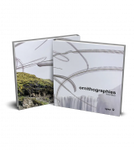Cancelled
By: David Eagleman(Author), Anthony Brandt(Author)
296 pages, colour & b/w photos, colour & b/w illustrations
![The Runaway Species The Runaway Species]()
Click to have a closer look
About this book
Biography
Related titles
About this book
Our relentless drive to create makes us unique among living creatures. What is special about the human brain that enables us to innovate? Why don't cows choreograph dances? Why don't squirrels build elevators to their treetops? Why don't alligators invent speedboats?
Weaving together the arts and sciences, neuroscientist David Eagleman and composer Anthony Brandt explore the need for novelty, the simulation of possible futures, and the social components that drive the inventiveness of our species. Taking us on a tour of human creativity from Picasso to concept cars to umbrellas to lunar travel, Brandt and Eagleman explore the cognitive software that generates new ideas, and illuminate the key facets of a creative mentality. Through understanding our ability to innovate – our most profound, mysterious, and deeply human capacity – we can meet the challenge of remaking our constantly shifting world.
Customer Reviews
Biography
David Eagleman is a neuroscientist at Stanford University. His scientific research is published in journals from Science to Nature, and he is also the author of the internationally bestselling books Sum and Incognito. He is the writer and presenter of the companion BBC television series The Brain.
Anthony Brandt is an internationally acclaimed composer and a Professor of Composition and Theory at Rice University's Shepherd School of Music. His musical output includes two chamber operas and works for orchestra, chamber ensembles, dance, theater, film, and television. He is also Artistic Director of the award-winning new music ensemble Musiqa.
Cancelled
By: David Eagleman(Author), Anthony Brandt(Author)
296 pages, colour & b/w photos, colour & b/w illustrations
"The unaccountable, jaw-dropping quality of genius"
– Geoff Dyer, Observer
"Mind-blowing revelations abound"
– Financial Times
"Entertaining and profound: page-turning neuroscience from a bit of a genius"
– Guardian
"A lively exploration of the software our brains run in search of the motherlode of invention [...] Beautifully produced, illustrated and written. [The Runaway Species] sweeps the reader through examples from engineering, science, product design, music and the visual arts to trace the roots of creative thinking"
– Nature
"A shining example of lucid and easy-to-grasp science writing"
– Independent
"A fun read by a smart person for smart people [...] It will attract a new generation to ponder their inner workings"
– New Scientist




































